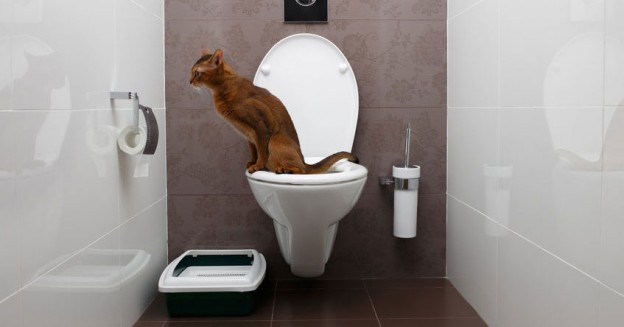Avoid Clogs and Damage: Don't Flush Cat Poop Down Your Toilet - Expert Recommendations
Avoid Clogs and Damage: Don't Flush Cat Poop Down Your Toilet - Expert Recommendations
Blog Article
Are you trying to find content around Can You Flush Cat Poo or Litter Down the Toilet??

Intro
As pet cat owners, it's important to be mindful of exactly how we dispose of our feline buddies' waste. While it may seem convenient to purge feline poop down the toilet, this method can have harmful effects for both the setting and human wellness.
Environmental Impact
Flushing pet cat poop introduces harmful pathogens and bloodsuckers into the supply of water, positioning a substantial danger to marine environments. These contaminants can adversely impact marine life and concession water quality.
Wellness Risks
In addition to environmental worries, flushing pet cat waste can likewise posture health risks to human beings. Pet cat feces may include Toxoplasma gondii, a parasite that can trigger toxoplasmosis-- a potentially extreme disease, especially for expecting females and people with damaged immune systems.
Alternatives to Flushing
Luckily, there are much safer and a lot more accountable ways to deal with pet cat poop. Take into consideration the following choices:
1. Scoop and Dispose in Trash
The most typical approach of throwing away pet cat poop is to scoop it into a biodegradable bag and toss it in the trash. Make certain to utilize a dedicated clutter inside story and dispose of the waste promptly.
2. Use Biodegradable Litter
Opt for eco-friendly feline clutter made from materials such as corn or wheat. These clutters are environmentally friendly and can be securely gotten rid of in the trash.
3. Bury in the Yard
If you have a lawn, think about burying cat waste in a designated area away from vegetable yards and water resources. Make sure to dig deep enough to stop contamination of groundwater.
4. Set Up a Pet Waste Disposal System
Invest in a pet garbage disposal system particularly designed for pet cat waste. These systems utilize enzymes to break down the waste, minimizing odor and environmental impact.
Conclusion
Responsible family pet ownership extends beyond supplying food and shelter-- it also involves appropriate waste management. By avoiding purging feline poop down the commode and choosing different disposal methods, we can minimize our environmental footprint and protect human health and wellness.
Why You Should Never Flush Cat Poop Down the Toilet
A rose by any other name might smell as sweet, but not all poop is created equal. Toilets, and our sewage systems, are designed for human excrement, not animal waste. It might seem like it couldn’t hurt to toss cat feces into the loo, but it’s not a good idea to flush cat poop in the toilet.
First and foremost, assuming your cat uses a litter box, any waste is going to have litter on it. And even the smallest amount of litter can wreak havoc on plumbing.
Over time, small amounts build up, filling up your septic system. Most litter sold today is clumping; it is made from a type of clay that hardens when it gets wet. Ever tried to scrape old clumps from the bottom of a litter box? You know just how cement-hard it can get!
Now imagine just a small clump of that stuck in your pipes. A simple de-clogger like Drano isn’t going to cut it. And that means it’s going to cost you big time to fix it.
Parasitic Contamination
Believe it or not, your healthy kitty may be harboring a nasty parasite. Only cats excrete Toxoplasma in their feces. Yet it rarely causes serious health issues in the cats that are infected. Most people will be fine too if infected. Only pregnant women and people with compromised immune systems are at risk. (If you’ve ever heard how women who are expecting are excused from litter cleaning duty, Toxoplasma is why.)
But other animals may have a problem if infected with the parasite. And human water treatment systems aren’t designed to handle it. As a result, the systems don’t remove the parasite before discharging wastewater into local waterways. Fish, shellfish, and other marine life — otters in particular — are susceptible to toxoplasma. If exposed, most will end up with brain damage and many will die.
Depending on the species of fish, they may end up on someone’s fish hook and, ultimately on someone’s dinner plate. If that someone has a chronic illness, they’re at risk.
Skip the Toilet Training
We know there are folks out there who like to toilet train their cats. And we give them props, it takes a lot of work. But thanks to the toxoplasma, it’s not a good idea.

I am very excited about Don’t flush cat feces down the toilet and I am praying you enjoyed my entry. Sharing is nice. Helping people is fun. Thanks so much for going through it.
Go Deal Report this page